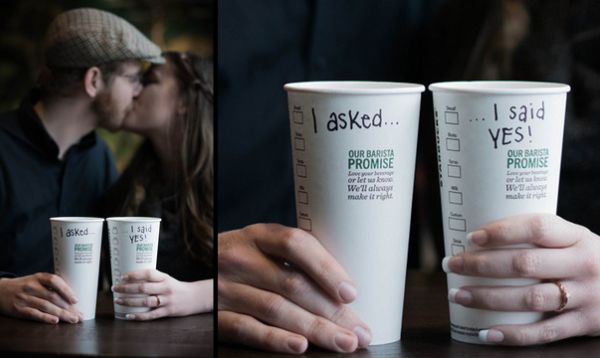Some years ago, I hosted a blind tasting beer party where everyone voted for their favorite and least favorite beers from a collection of microbrews and mainstream brands. Although there was no clear winner, there was definitely an outright loser.
I was thinking about that party when taking a closer look at Coke’s decision to kill its White Coke can before the scheduled end of its holiday season run. This was primarily a story about customer confusion — there was not enough difference between the White Coke can and the Diet Coke can and people were getting confused and buying the wrong one. But there was a side-story that some people thought that the Coke from the white can did not taste the same/as good as the Coke from the red can. Ridiculous, you might say. Not that surprising, I thought, based on my own experience from that beer-tasting party.
In fact, there is plenty of research that shows how the power of packaging influences taste perception. Brian Wansink carried out an experiment where restaurant diners were served a free glass of wine before a meal. All diners got the same wine, but half were told it was from California, and the other half were told that it was from North Dakota. The diners who thought the wine was from California enjoyed the wine more — clearly influenced by their expectations. But it didn’t end there. They also rated the food higher, ate more of it and said they were more likely to return than the diners who thought they had been given wine from North Dakota. What the diners were told about the origin of the wine had a profound impact on their experience of the whole meal.
What’s going on here is that our brains are trying to compensate for the fact that most of us don’t have a very refined palate, and can’t tell good from bad without additional clues. As Dan Ariely described in “Predictably Irrational,” fMRI tests have shown that the prefrontal cortex, responsible for higher-order brain functions, activates when it is given information (like a wine’s origin) and can override the part of the brain that is just reacting to the taste. Wine actually tastes different if you know (or think you know) where it comes from.
This helps explain why Pepsi won the Pepsi Challenge (a blind taste test) but didn’t beat Coke in most branded taste tests. Coke was winning the battle of the prefrontal cortex with its brand. When I worked at Nestlé, we had a goal to be preferred 60/40 in blind taste tests vs. the competition. In light of this research, this looks like a noble but futile objective. Taste does matter, of course — but what really counts is how people rate the whole package.
Other research has shown similar effects from music, lighting, utensils and other aspects of the dining experience. Context is another important factor that impacts experience.
This is good news for brand managers because it reaffirms the importance of branding. It’s not just about the product inside. The brand matters because it tells consumers what to expect and influences how they evaluate a product. A strong brand gets the prefrontal cortex on your side.
It also reinforces the importance of considering your customer’s complete experience. The little details — even ones that are not directly related to the product itself — are important in forming brand perceptions. Ignore them at your peril.
The Blake Project Can Help: The Customer Experience Co-Creation Workshop
Branding Strategy Insider is a service of The Blake Project: A strategic brand consultancy specializing in Brand Research, Brand Strategy, Brand Licensing and Brand Education





2 comments
Mark Di Somma
January 28, 2016 at 4:40 pm
Another great piece Martin – and it reminded me of a piece of the backstory of the New Coke fiasco that someone shared with me. New Coke tested very well in blind tastings (although there was some contention that it tasted good in small samples but not so well when there was a greater volume to consume), but faced with losing the Coke they knew, consumers couldn’t move on. The memory of Coke proved too strong to let go. There’s a lot to be said for the maxim: brands are memories. The associative powers of that speak to the key issues in your piece. Thanks again.
Madeline Anderson-Balmer
February 23, 2016 at 9:50 am
Totally agree on the importance of brand, both as a way to sell, and as a way to be remembered. I can certainly remember the hotel in TX where I was greeted at the front door by the scent of warm chocolate chip cookies. I saw that entire experience as a homey one. I also remember a hotel in MD where I was greeted by an overcrowded bus stop behind which was the front entrance.. it was a revealing glimpse into what the rest of my stay would be like. An initial experience can color an entire relationship. That’s the power of branding!
Comments are closed.